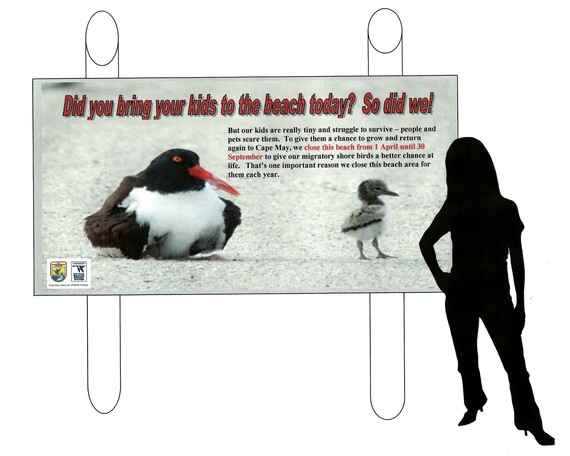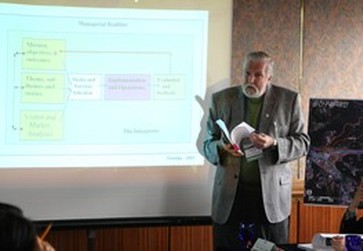John Veverka & Associates
Main menu
- Home Page
- Our Range of Services
- Separator 2
- Interpretive Coaching
- Interpretive Planning
- Interpretive Plan Outline
- Interpretive Training
- John Veverka Resume
- Qualifications
- NEW Advanced Interp. Text Book
- Separator 11
- InterpNEWS
- Separator 12
- Library
- Expert in Interpretation
- JVA NEWS, Courses and Updates
- Certificates
- Separator 47
- Planning/Design of Interpretive Panels
- Separator 48
- Interpretive Writing
- Separator 49
- Interpretive Writing Course
- Separator 50
- Interpretive Trails Course
- Separator 56
- Interpretive Panels Course
- Separator 55
- Introduction to Heritage Interpretation Course
- Separator 54
- Interpretive Planning & Design of Marketing Brochures Course
- Training for Interp. Trainers
- Separator 57
- Interpretive Exhibits Course
- Separator 58
- Interpretive Master Planning Course
- Separator 59
- Interpretive Planning for Scenic Byways.
- Critiquing and Coaching Interpretive Staff
- Separator 31
- Advanced Interpretive Planning
- Interpretive Training Center Course Catalogue
- Separator 32
- Interp. for International Visitors course.
- Separator 33
- Interpretive Exhibits Evaluation
- Separator 34
- Interp. Center Feasibility Analysis Course.
- Separator 35
- Interp. for Commercial Tour Providers
- Separator 36
- Interpretive Researchers Guide for Visitor Studies
- Separator 37
- Separator 13
- Interp. Planning for Historic Homes
- Separator 14
- Heritage Interpretation Training Center
- Interpretive Planning for Botanical Gardens
- Separator 15
- An introduction to planning and presenting live interpretive programs and tours for Museum/Heritage Site Docents and Volunteers.
- Developing Marketing Plans for Heritage & Tourism Sites and Attractions
- Separator 16
- Interpretation Book Store
- Separator 17
- Heritage Interpretation Resource Center
- Interpretive Planning for Historic Farms
- Developing Successful Partnerships
- Developing Interpretive Outreach Programs
- Community Interpretation Planning
- Interpreting Gravestones and Historic Cemeteries
- Using Interpretation to Accomplish Management Objectives.
- An Interpreters Guide for Survival Economics.
- Separator 18
- Innovative Strategies for Interpretive Media and Services Planning.
- Separator 19
- A Curators Guide for Developing Gallery Tours.
- Advanced Interpretive Writing - Technical Publications
- Page 2
- Advanced Interpretive Services for Managers, Supervisors, Team Leaders and Sr. Staff.
- Separator 20
- Advanced Interpretation for Chiefs of Interp. - Interpretive Managers - Regional Interp. Specialists
- Interpreting Critical Issues.
- Separator 21
- Developing Commercial Interpretation for Resorts, Cruise Ships, Campgrounds and Tourism Attractions.
- Separator 38
- Planning and developing a new commercial tour guiding business.
- Separator 39
- Interpretive Evaluation, Visitor Studies and Site Assessment Center
- Separator 40
- The Center for Interpretive Planning Advancement & Excellence.
- Developing Requests for Proposals (RFPs)
- Separator 41
- Planning and Facilitating Focus Workshops
- Separator 42
- InterpNEWS Advertising Details
- Planning for Interpretive Experiences
- 40 Years a Heritage Interpreter
- Separator 43
- Interpretive Techniques - The Rest of the Story Course
- Separator 44
- Certified Professional Interpretive Planner Certificate
- Certified Professional Interpretive Program
- Certified Professional Interpretive Trainer certificate program.
- Separator 53
- Certified Professional Heritage Interpreter certificate program.
- Separator 52
- Certified Professional Interpretive Writer certificate program.
- Visitor motives for attending interpretive programs.
- Separator 45
- Exhibit Rehab Course
- Separator 46
- Developing Training Workbooks & Manuals
- Separator 22
- Planning for Railroad Museums and Sites.
- Separator 51
- Climate Change Interpretation Course.
- Separator 23
- When there's nothing left but the story - interp. storytelling.
- Separator 24
- Interpreting Legends Myths and Fables
- Separator 25
- InterpSHARE - Seminars 2022
- Separator 26
- Interpreting Invasive Species
- Separator 27
- Interpretiing Edible Insects
- Separator 28
- Interpretaive Planning for Climate Change
- Separator 29
- HITC Climate Crisis Resource Center
- Separator 30
- Separator 5
- PUP Members Only
- Starting a new Interp Consulting Business
- Panels 4 Week Course
- Separator 8
- Interpretive Writing - 4 Week Course
- Marketing - 4 Week Course
- Separator 7
- Intro to Interpretation - 4 Week Course
- Separator 9
- Interp Climate Change - 4 Week Course
- Separator 10
- Exhibit Rehab 4-Week Course
- Separator 6
- Level 1
- Johns Interpreters Blog
- Separator 4
- Economics for Heritage Interpreters
Interpretive Writing Course
Interpretive Writing Course - 8 Units and 2 CEU Credits
$200.00 Tuition
When is a word "more" than a word?
Interpretive writing for a large panel - Cape May National Seashore - using interpretation to accomplish management objectives.
Are you ready for e-LIVE interpretive training? JVA (John Veverka & Associates) is pleased to offer the first of several e-Live interpretive training courses being developed by Professor John Veverka. We feel that any interpretive training experience should be taught by professional Certified Interpretive Trainers with college level degrees in heritage interpretation (ideally at the M.S. or Ph.D. levels) and/or with years of actual interpretive experience in the courses being offered, to deliver college level interpretive training courses. We also know that while many folks would like to attend formal interpretive training courses, time away from the office/home, course fees, and related travel expenses often made this an expensive proposition. With e-LIVE the coach comes to you.
About the Instructor: Prof. John Veverka

Prof Veverka teaching interpretive course in Korea - John's Interpretive Writing Course Textbook.
- B.S and M.S in Heritage Interpretation - The Ohio State University
- Ph.D. program in Interpretation at Michigan State University.
- Adjunct Professor Heritage Interpretation (summer heritage tourism institutes) North Carolina State University,
- New York State University. Adjunce Professor, Heirtage Tourism Institute.
- NAI Certified Interpretive Planner and Trainer
- NAI Fellow
- Certified Professional Heritage Interpreter (Canada).
- Author of several interpretive planning/training college text books.
- Publisher of InterpNEWS - the International Heritage Interpretation e-Magazine.
- 40 years of interpretive planning, training and writing experience.
Check out my YouTube video about the course: https://www.youtube.com/watch?v=xhJhAeYT0xo
How does e-LIVE work? Our e-LIVE courses are limited to 10 participants at one time, to allow for maximum interaction with the course instructor. Once one participant completes the course another participant can be added.
- You'll be given course content to read and interact with for each unit.
- JVA will provide you with reading assignments, text book and reference articles as part of the course, that you keep for your library.
- You'll be given a writing assignment for each unit which you'll send to John for review, comments and writing coaching. You'll be able to talk with John about each assignment via SKYPE, or by e-mail or phone. Thus the e-LIVE opportunity. John will be your instructor and writing coach who you can talk with at any time about your assignments. Remember that John is in Michigan (Eastern Time Zone), so it's best to e-mail John to set up a time to chat.
- When you've completed each course unit you'll be sent the next unit for the course. Again, you'll be given writing assignments for that unit to submit to John for review, comments and writing coaching.
- When you've completed the eight units you'll be awarded a Certificate of Completion and 2 CEU (Continuing Education Unit) credits.
Additionally, you can work on writing assignment for actual projects you may be working on - museum labels, marketing materials or other interpretive writing projects. That is the benefit of e-LIVE - we are flexible in designing the course to meet your real-world needs.
The estimated completion time of the course is about 20 hours - and you can work at your own pace.
What are the units?
Unit One - What is "interpretation" anyway?
- Review of Tilden's Interpretive Principles
- How to use Tilden's principles in basic text writing.
- Examples of interpretive text using Tilden's Interpretive Principles.
Unit Two - Planning for Interpretive Writing Projects.
- The model of interpretation - planning for developing interpretive text/copy.
* Writing to illustrate an interpretive theme.
* Developing and writing to accomplish interpretive objectives:
+ Learning objectives
+ Behavioral objectives
+ Emotional Objectives
* Who is your audience - writing to connect with different learning styles.
* Where will the writing appear? (Interpretive Panels, Exhibits, leaflets, web sites?).
* Time, energy and costs for writing interpretive text/copy.
* Implementation - getting ready for the final copy.
* Evaluation and pre-testing your copy.
Unit Three - Tangibles, Intangibles and Universal Concepts.
This unit will explore the use of tangibles, intangibles and universal concepts in your interpretive writing. We will provide examples of each in handout materials. Using these concepts is how you'll really be able to connect with and relate to your audience.
Unit Four - Writing with feeling and imagination. In this unit we'll look at using a variety of writing basics in creating really wonderful interpretive copy.
* Active verbs
* Colorful nouns
* Personal words
* Powerful adjectives
* Metaphors
*Analogies
* Similes
Unit Five - Writing for Museum Exhibits. In this unit we'll look at how the label copy needs to work with the graphics and artifacts in the exhibits as well as be interesting and interpretive.
* Writing toward exhibit objectives.
* Writing layers (headlines, main copy text, sub-copy text, captions.
* Copy point size and fonts for museum exhibits.
* Say it in 50 words (Provoke, Relate and Reveal).
* When a word becomes a picture.
Unit 6 - Writing for interpretive panels and wayside exhibits. This unit will follow many of the concepts in the exhibit label copy text writing. Writing for interpretive panels needs to be theme and objective based as well. It also needs to reflect the interpretive plan for the total site the panels will be located in, contributing to the total site interpretive theme presentation.
Unit 7 - Writing for self-guiding trail or tour leaflets. One of the most common writing assignments is developing copy for self-guiding trails or self-guiding walking tours. This unit will look at developing one story illustrated with 7-10 stops.
Unit 8 - Writing to accomplish management objectives. This can include traditional issues such as marketing issues, safety rules and regulations, and related management issues unique to your organization. Projects will be individualized for your particular issues.
Course Costs and Registration.
The cost for the 20 hours training with live interaction with the instructor is $200.00 USD.
You can pay via credit card or PayPal.
Here is how to register for the course:
Simply pay the course tuition (at the pay now button below). You can pay by credit card or paypal.
Once the course tuition is paid (PayPal will send us a notice). John will send you Unit One and all related course materials and an e-copy of his text book "Guidebook for Interpretive Writing". He will also be happy to chat with you at the start of your course as wel,l to make introductions and get you going. If you're planning to start the course, send John an e-mail to let him know. Be sure your e-mail can accept large e-mail attachments and not block them or send them to SPAM :)
In you have any questions at all, please feel free to ask.
For Payment by credit card or paypal: